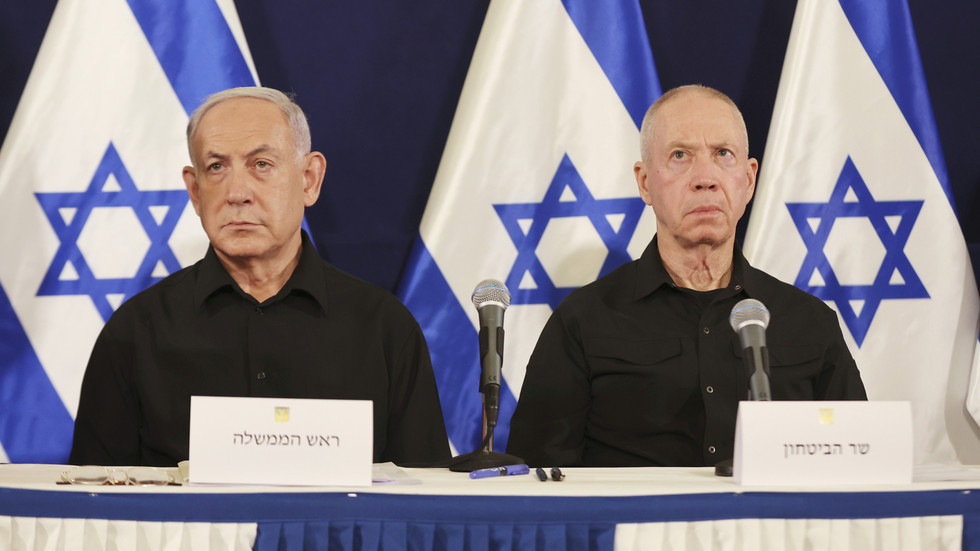The recent dismissal of Defense Minister Yoav Gallant by Israeli Prime Minister Benjamin Netanyahu marks a significant turn in Israeli politics, coinciding with the day of the US presidential election. The appointment of Israel Katz, a former Foreign Minister, as Gallant’s successor suggests an attempt by Netanyahu to navigate growing domestic and international pressures. The ongoing conflicts in Gaza and Lebanon, alongside a deteriorating economy and international criticisms of military operations, have contributed to the urgency of this reshuffle. Netanyahu’s decision reflects his precarious position, heightened by strained relations with the US Democratic Party, especially if Kamala Harris’s anticipated victory alters the political landscape. The key question remains whether Katz’s appointment will adequately address the challenges faced by Israel in both defense and foreign policy domains.
Gallant’s removal signals dissatisfaction with the military operations that have unfolded over the past year, resulting in significant casualties and a protracted conflict. With around 2,000 Israelis killed, including a high number of military personnel, public sentiment has turned against lengthy military engagements resulting in little tangible progress. The humanitarian fallout following these operations has drawn the attention of international organizations and allies, prompting calls for restraint and a pivot toward diplomacy. The weight of these criticisms, compounded by economic setbacks—such as a declining GDP growth rate and an increased budget deficit caused by military expenditures—further justified Gallant’s dismissal in the eyes of political observers.
In light of these developments, Katz’s prior experience in foreign diplomacy may prove critical as Israel seeks to ameliorate its standing amidst growing international discontent. Recent mass protests against Israeli policies have manifested globally, signifying disapproval and potential threats to Israel’s foreign relations. This public backlash echoes through various legal actions, including a case brought by South Africa to the International Court of Justice citing potential genocide in Gaza, and ongoing investigations by the International Criminal Court into alleged war crimes. As international pressure mounts, the need for a unified diplomatic approach becomes vital for Israel’s future defense capabilities. Katz’s expertise might facilitate bolstering Israel’s relationships and quell rising tensions on the global stage.
Despite this, the road ahead appears fraught with uncertainty. Israel’s isolation on the international scene has prompted an analytical re-evaluation of its defense strategies and diplomatic engagements. Netanyahu’s move to install Katz is likely a strategy to recalibrate Israel’s international approach while solidifying political support domestically. Amid growing societal divisions and opposition pressures, Netanyahu’s ability to convey confidence within the government remains paramount, especially as public trust wanes in light of ongoing challenges. The political landscape in Israel necessitates a leader capable of both calming domestic unrest and addressing international criticisms effectively, putting Katz in a challenging position right from the outset.
However, the political reshuffle could be viewed as more of a reactionary measure than a genuine overhaul of defense policy. Critics might argue that while Katz’s appointment provides a veneer of change, it may fall short of addressing entrenched issues affecting Israel’s security and broader strategic objectives. Gallant’s hardline approach had shaped the previous military doctrine, and his dismissal could allow Netanyahu to deflect criticism without fundamentally altering the military strategy. The complexity of the task at hand illustrates the dissonance between political maneuvering and the urgent need for comprehensive policy reforms, especially when weighed against the backdrop of a difficult economic climate and ongoing regional tensions.
In conclusion, the fallout from Gallant’s dismissal and Katz’s subsequent appointment encapsulates the larger strategic challenges facing Israel both internally and externally. Netanyahu’s administration appears focused on stabilizing its government amid increasing pressures from rival factions and the public. However, the divides within Israeli society, coupled with the economic consequences of ongoing military operations, necessitate substantial policy revision rather than superficial changes in leadership. As Katz takes on the role of defense minister, the extent to which he can influence both military operations and diplomatic engagement will be closely scrutinized. Balancing international expectations with domestic imperatives presents a formidable challenge for the Israeli administration in its pursuit of stability and security.

